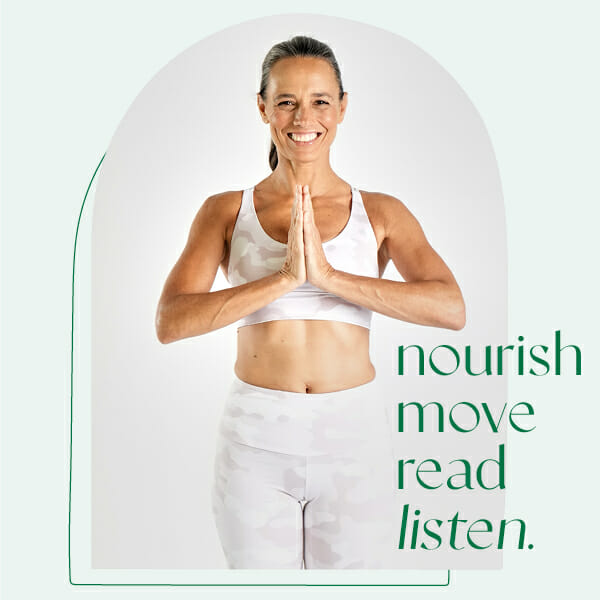![]()
How being a perfectionist can damage your mental health

Experts tend to define perfectionism as “a combination of excessively high personal standards and overly critical self-evaluations”.
And whilst saying you’re a perfectionist may sound good in a job interview, does striving for perfection actually make you feel good about yourself?
Studies show that constantly chasing the ghost that is perfection, may seriously harm your mental health and well-being. More importantly, are you able to recognise this toxic paralysing feeling for what it is?
If you are one of those people who has to ‘get it right,’ perfectionism and depression may then collide, and as we have been learning through our wellness series awareness is key. Perfectionism can severely impact our mental and physical health.
We chatted to Clinical Psychologist Lynn Jenkins on the topic after it was discovered to be a core concern amongst us modern day mums and got her take on the issue and how best tackle it.

What is perfectionism
Perfection could be defined as a character trait. It’s also a tool used to measure postnatal depression as there is a certain vulnerability to it. Perfectionism is one of those listed items like on a tick box such as “will you be bothered if your house becomes a mess” and this is because perfectionism is a behaviour, and this idea of control.
If you’re a mum, I’m sure you would remember looking at those questions in midwife appointments, nervously thinking “what is the right answer to this?” or even “what is the point of this question?”
If we suffer from a decent amount of perfectionism we are fine as long as in our world, or perception of it, we still have our finger on all the pies and everything is going well. Or everything is in order.
As soon as something comes along where we can’t control all the details or aspects, such as having a baby, we start to feel as though we are losing control. We are not practiced with dealing with these things and that’s why having a baby is one of those predictors because it’s almost as though we don’t have the skills set for that lack of control feeling. That feeling as though, suddenly, we don’t have our fingers on all the pies.
Postnatal depression comes as such a shock to people because you want to believe you can manage anything that comes your way, you have the time or you have the systems in place. And then the baby comes along and your plans or systems fail because you are in completely foreign territory.
There’s a lot of pressure for things to be perfect

What’s more, perfectionism can be seen in young children in that sense that “it’s not good enough” or scrunching up paper in a rage or getting quite distressed. It stems from this belief we’re not good enough or theirs is better than mine.
It isn’t necessarily a bad thing, there is a brilliant side that comes with it, as we all know a lot of achievers are perfectionists. The flip side if it’s not shaped a tiny bit is it can turn into that belief that I’m not good enough. And so early intervention, like everything – is key.
Whether the drivers for perfectionism are environmental or genetic, or a mix of the two, as parents if we’re a little prone to perfectionism or carry these traits its wise to look out for any signs of this in our children. While it may not be a bad thing we don’t want them to end up thinking they aren’t good enough.
Lynn tell us “The thing with perfectionism is we learn that we can’t tolerate making mistakes and as kids it’s important to be able to tolerate making mistakes. It’s important to be able to look at someone else’s work…to look for the qualities that are good in others’ work as well.
“When we compare ourselves it’s this internal measure or this internal bar or standard and when perfectionism is in full swing its a feeling of it never being reached. When we go through life with this unreachable bar thinking that everyone does a much better job than us at everything it’s easy to get that I’m not good enough feeling and when this belief is applied to things that are extra important to us – jobs, relationships, parenthood, it can hit us really hard and that’s when it can turn into depression.
“Or at least have depressive feelings.”
Every behaviour is a strategy to meet a need

Lynn also describes for us the bullying behaviour that can arise in young children where they put others down in order to make themselves feel better or to help them reach their perception of that perfectionist bar.
“The stance on that is that every behaviour is a strategy to meet a need. If their need is to feel better or attempting to reach that internal standard, well it’s just a strategy – ‘I’ll get there by putting that person down because she’s really good’.
“It’s an example of where the destructive side of it can impact other people…It’s a rigidity and that’s a common issue with kids whether they’re budding little perfectionists or they’re not”
As adults we’re more adept at hiding these tendencies and yet they are important to us because having things in order brings a sense of calm. We’re all about the nervous system and this system is at the core of most of the things that we are as humans. And it is this perception that we have our fingers on every pie that brings us a sense of calm.
“So it’s very addictive, it’s like you need it for your system to feel balanced. And any perception that you’re out of control of our nervous system is threatening, and then we’re all out of whack…”
But maybe it depends on their internal bar, their internal perception. What your life has to look like or what you have to do to bring this sense of accomplishment within yourself will vary and depend upon your internal bar, or your internal perception. When it comes to achieving a calm state Lynn also talks of flexibility being tied to this concept.
2 trees
She talks of the 2 trees, which is an old parabole. “You’ve got two trees, a really tall straight tree with no branches and no leaves and then another tree – still tall and straight but with lots of branches and nice green leaves.
A big storm comes along and the tall tree with no branches can’t move – and that’s rigidity. And if the wind is strong enough it will snap. The other tree with branches and leaves bends and twists and moves with the wind so it goes with the flow so that’s more flexibility…it’s coming up with things that you consciously need to say to yourself that helps you to become more easy breezy and flexible.
Things like “just go with it.” You may not like the feeling but you can deal with it, you can handle it. And once again we draw those trees and put them in front of our face to remind us if it’s an issue for us”
We must repeat that awareness is always key. We have to be able to recognise these depressive feelings within ourselves, and take note. And sometimes we need others to let us know they’re noticing a change.
When perfectionism causes depression

Depression isn’t always the obvious signs of sadness and crying and being withdrawn. Depression is quite often as subtle as irritability, out of character snapiness, negativity, interrupted sleep or appetite.
You can also be highly anxious if you constantly compare yourself and assessing that you’re coming up short is always perceived as a threat to our nervous system, which will in turn present with symptoms of anxiety.
So if you feel out of sorts in any of the above listed ways or recognise this in a friend or family member the first port of call is always to chat to your GP or someone close to you depending on who is in your life. Early intervention is always the best.
And remember – to continuously reach for an elusive internal measure isn’t a healthy reality. Learning to bend and not break is an achievable goal we can set our minds to and a lesson to live by.
- How to overcome toxic thinking
- How diet can affect mental health and recipes to boost positive thinking
Get Complete Mental Health Wellness Programs in the Wellness App

The Healthy Mummy Wellness app is built to support mums’ mental, physical and social wellbeing. We have expert advice to help mums makeover their minds, transform their mood, manage their hormones, sleep better and engage with their family. You can listen to podcasts, read blogs, work out with our trainers and find healthy, family-friendly recipes from the palm of your hand.



